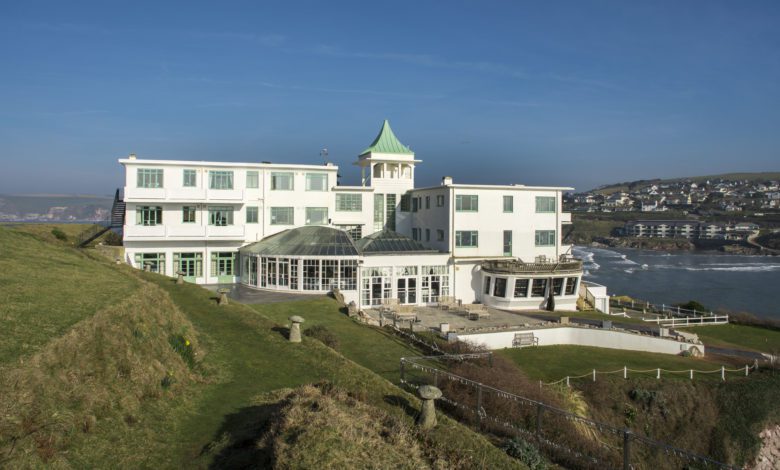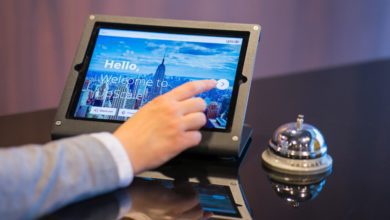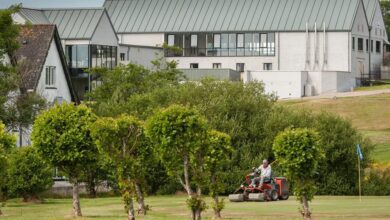Dear hoteliers – wellness tourism is on the rise
By Penny Brown, the managing director of Burgh Island Hotel

With one in eight adults in the UK grappling with persistent exhaustion, wellness holidays are no longer a luxury but a necessity for our wellbeing. Demand for such holidays is growing: the wellness tourism market is projected to reach $1.3tn (£1.03tn) by 2025.
Meanwhile, half of all travellers in 2023 were found to have planned vacations with the primary aim of enhancing their wellbeing.
Indeed, Holland and Barrett’s 2024 Wellness Trend Report has indicated a remarkable 2000% surge in online wellbeing consultation bookings in 2023. This upswing not only reflects a growing cultural health-conscious mindset, but also a drive towards self-care.
Hotels are at the forefront of this, not just accommodating individuals, but providing a holistic escape from daily life for guests.
Keeping fit and fresh
Physical activity is one of the primary methods for maintaining a happy and healthy lifestyle. In fact, outdoor exercise is a growing trend, with a remarkable $19.7bn (£15.6bn) sales in hiking footwear underscoring the surge in hiking and similar activities. Rucking, which is the practice of walking with a weighted backpack, is another anticipated major health trend for 2024.
Hotels can therefore encourage guests to take a walk – be it to explore every corner of the city, or follow nature trails, as Burgh Island does with its close proximity to the scenic coastal South West Coast Path – England’s longest National Trail – and climbing the paths around the island, where various animals and plants coexist.
It’s not just physical wellbeing that needs to be attended to, however; mental wellbeing is important too and exercise can contribute to this, with actions as simple as climbing stairs instead of taking lifts enhancing people’s state of mind. At Burgh Island, we also host artist experiences that not only allow guests to explore their creative selves, but truly connect with the island’s elemental surroundings.
An apple a day
Between all that exercise, guests will have worked up an appetite! Food undoubtedly plays a great role in wellbeing, and maintaining a diverse and nutritious diet is essential not only for physical mobility, but for enhancing memory, concentration, and even preventing depression.
A Mediterranean diet – fibre, seafood, legumes, and a glass of wine or two – is widely considered to be one of the healthiest diets in the world, and incorporating these into your hotel’s menu can help promote better physical and mental wellbeing for guests.
However, it’s not just about what type of food, but its quality too. Locally-sourced food not only has environmental benefits – such as reducing food miles and waste – but is often fresher, free from preservatives, and more flavourful. This is why we emphasise sourcing local produce for our kitchens at Burgh: it’s more sustainable, healthier, tastier, and helps us showcase the best of British.
Have a nap
After having eaten, some guests will simply want a short nap. Almost half of UK adults do not get the recommended seven to eight hours of sleep every night, which can be detrimental to mental wellbeing and even longevity. It is reported that consistent, quality sleep can add as much as two to five years of life expectancy to an adult.
As such, sleep tourism is now on the rise. According to Skyscanner’s UK Travel Trends for 2024, over a third of holidaymakers have listed sleep as their favourite thing to do while on a break. Hoteliers will want to provide guests with a plush, comfortable environment to spend their time.
One of our principles at Burgh Island is to eliminate blue light in our hotel rooms, not just for the sake of staying true to our 1920s art deco heritage, but to help our guests disconnect before bed. 15 million UK internet users opted for a digital detox last year, and a third of internet users sought up to a month offline. Of course, digital devices are available in our rooms upon request, but guests that want to tune out will appreciate a good night’s sleep.
As hotels incorporate a variety of trends and practices to improve the physical and mental wellbeing of guests, they serve to meet the demands of guests for a getaway that prioritises holistic wellbeing. By doing so, hotels can become more than a business – and offer guests an enchanting retreat from everyday life.









